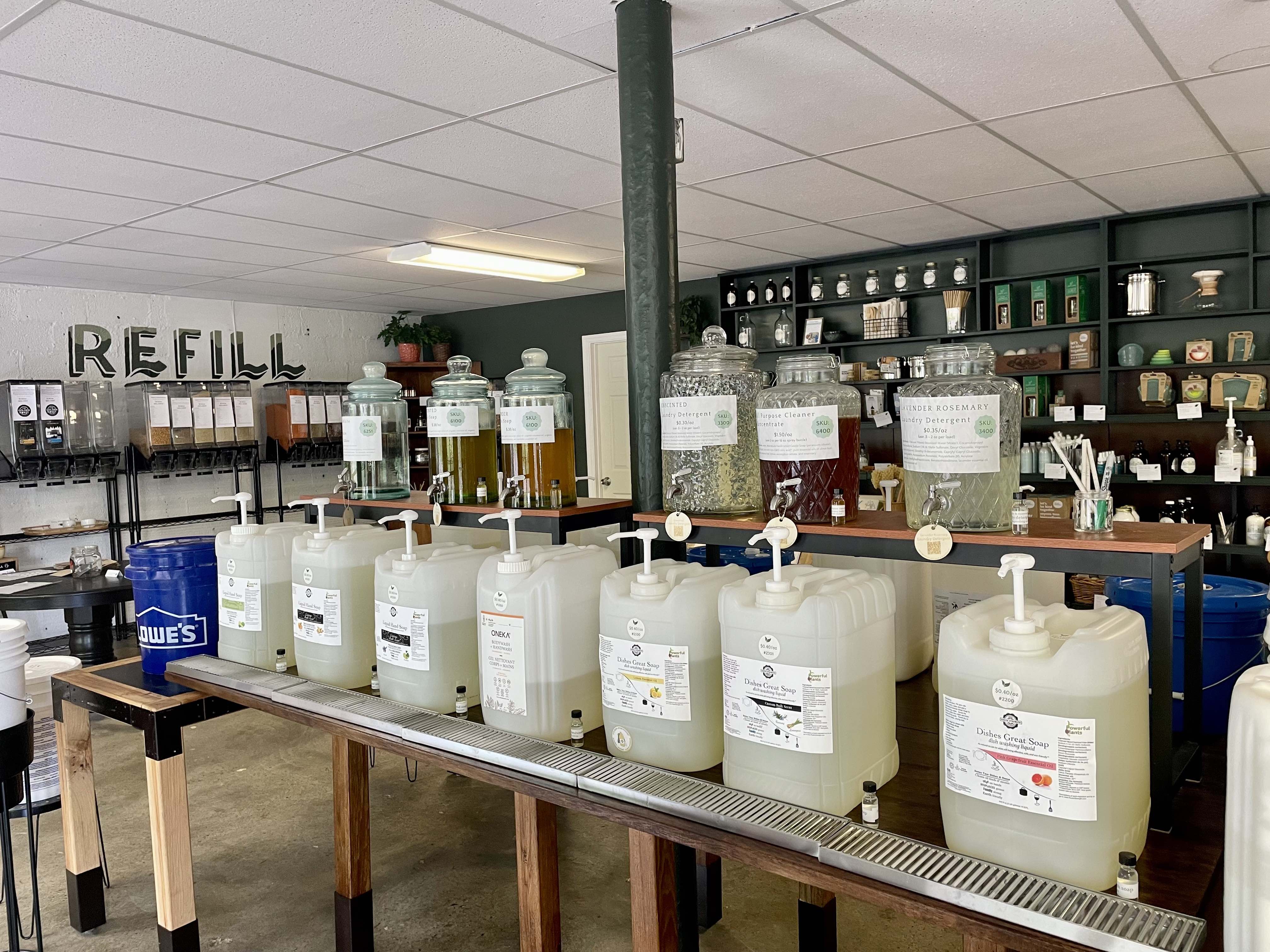Displaying items by tag: zero waste
Refill with KnoxFill. Knoxville startup gets its own storefront.
 Multiple household and personal items such as detergent, shampoo and even toothpaste can be refilled at KnoxFill, which now has a storefront at 3211 South Haven Road in Knoxville. Photo courtesy Michaela Barnett
Multiple household and personal items such as detergent, shampoo and even toothpaste can be refilled at KnoxFill, which now has a storefront at 3211 South Haven Road in Knoxville. Photo courtesy Michaela Barnett
Glass jars aren’t just for moonshine anymore
KNOXVILLE — The city now has a store where walk-in customers can buy refillable household products.
“Zero waste” is commonly heard around concerts, festivals and Earth Day events, but now it is easier to make it a daily priority.
KnoxFill opened a 1,600-square-foot store April 8 in South Knoxville at 3211 South Haven Road.
The company uses reusable glass containers for purchasing common household goods such as shampoo and detergent, like the way you might buy bulk foods. Hellbender Press previously reported on this business.
Their products are eco-sourced. The idea is if a container is not reused, it will either be landfilled, incinerated, end up as litter, or recycled, which has its own set of issues. That’s on the back side of the waste stream. Refillable glass containers also combat pollution and waste on the front side by eliminating the petrochemicals needed to produce and ship all the plastic containers needed for consumer products in the first place.
Prior to opening her store, owner Michaela Barnett provided her goods and services via the “milkman” method. She would refill the bottles at home and then deliver them to her customers.
“The milkman system was very labor intensive; we could never have the impact and scale we now have without a brick-and-mortar store,” she said.
One town tried to eliminate waste. Plastic posed a problem.
Kamikatsu, Japan, famously declared its goal was to go waste-free by 2020. It didn’t quite get there.
This story was originally published in The Revelator
One of the many unfortunate outcomes of the coronavirus pandemic has been the quick and obvious increase in single-use plastic products. After COVID-19 arrived in the United States, many grocery stores prohibited customers from using reusable bags, coffee shops banned reusable mugs, and takeout food with plastic forks and knives became the new normal.
Despite recent scientific evidence that reusables don’t transmit the virus, the plastic industry has lobbied hard for a return to all things disposable plastic. Inevitably, a lot of that plastic will continue to flow into our environment.
While COVID-19 has certainly thrown a wrench into the hard-earned progress we’d been making in reducing waste, eliminating plastic pollution entirely was always going to be challenging — with or without a pandemic. The jarring rise of single-use plastics is an expedited version of a familiar trend. Plastic production has been steadily increasing for quite some time.
As a zero-waste advocate, I’ve seen how the tsunami of plastic continuously being produced and flooding our planet has made achieving zero-waste goals incredibly difficult. The sheer amount makes it hard to safely and efficiently dispose of plastic, no matter how hard we try.
But as I examine the problem, and search for solutions, I keep coming back to one noteworthy example.
- plastic pollution
- covid plastic increase
- reduce waste japan
- plastic recycling
- kamikatsu, japan
- the revelator
- reusable bag
- reusable packaging
- covid19
- zero waste
- waste free
- reusable mug
- reuse
- reduce
- recycling
- plastic industry
- nonrecyclable
- single use plastic
- mixed material
- food container
- bottle bill
- break free from plastic pollution act
